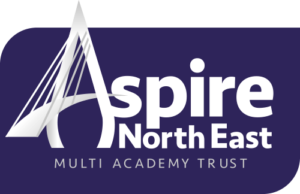Media Curriculum Overview
Aim
Media and Film are an important part of everyone’s lives, we are constantly surrounded by both Media and Film; these forms are evolving at a rapid and exciting rate. Our vision, here are Southmoor, is to build on enthusiasm and passion for Media and Film; exploring varying forms in a variety of contexts. Through the study of Media and Film, at KS4 and KS5, students will gain an analytical ‘toolkit’, develop creativity and explore original ideas in a fair and inclusive context.
Media and Film is an intensive and academic field of study with a specific film and media terminology and a range of theorists’ ideals to explore and examine. You will need commitment, drive, ambition; high expectations are the key motivators to inspiring, achieving and excelling within this exciting and unique area of study.
Intent
The media studies curriculum at Southmoor Academy aims to develop our students’ confidence in critically engaging with media texts of all styles and types. Across the course of study, students will develop an understanding of and analytical approach to television, radio, music, video games, advertising, film, print media and online and social participatory media. The curriculum is designed in order to encourage critical evaluation skills and personal approaches to a variety of texts- within the study of these close study products (CSPs), students will be prompted to consider their own experience and approach to the media industry and analytically consider the role that it plays in their own lives. Within the media curriculum there are frequent opportunities for cross curricular links with aspects of English language, history, politics and psychology and sociology. In particular the reference to multiple theoretical studies allows students to explore how media texts are purposefully manipulative, and the strategies that media production teams have utilised and refined over the last century. The media curriculum is underpinned by an engagement with the key concepts of media studies: industry, audience, language and representation. Each of the fifteen CSPs will be used as a representative example of their specific sub-category of media text and are designed to invite close scrutiny and analytical evaluation. The media curriculum includes a deliberate focus on broadening students’ media technical language, something that is supported by our knowledge organisers, as students are actively encouraged to experiment with the application and use of technical and theoretical terminology throughout their studies. The development of analytical skills across Year 10 also builds the required familiarity with the rigorous requirements of the GCSE exams and frequent and purposeful practise of key exam questions and styles is built in for termly review. Within the Non-Exam Assessment students will be given an exciting opportunity to independently approach a topic of their choice within the AQA stipulated task. This independent coursework task will allow students to creatively design and produce a media product of their own and actively apply the theoretical approaches to the industry that they have acquired across the course. The freedom of personal choice in their design represents the overriding intent of the media course, which is to encourage passionate, personal interaction with this vast, creative and constantly shifting industry.
Throughout our programmes of study, every attempt is made to make explicit links to careers and the world of work. In addition to subject specific links, we aim to explicitly reinforce the skills and aptitudes which support employers say are important in the workplace;
- Resilience (Aiming High, Staying Positive, Learning from Mistakes)
- Collaboration (Teamwork Leadership Communication)
- Creativity (Originality, Problem Solving, Independent Study)
The British values of democracy, the rule of law, individual liberty, and mutual respect of those with different faiths and beliefs are taught explicitly and reinforced in the way in which the school operates.
Sequence and structure
Key Stage 4 Media Studies Curriculum
Key Stage 5 Curriculum
Key Stage 5 Film Studies Curriculum
How does our Curriculum cater for students with SEND?
Southmoor Academy is an inclusive academy where every child is valued and respected. We are committed to the inclusion, progress and independence of all our students, including those with SEN. We work to support our students to make progress in their learning, their emotional and social development and their independence. We actively work to support the learning and needs of all members of our community.
A child or young person has SEN if they have a learning difficulty or disability which calls for special educational provision to be made that is additional to or different from that made generally for other children or young people of the same age. (CoP 2015, p16)
Teachers are responsible for the progress of ALL students in their class and high-quality teaching is carefully planned; this is the first step in supporting students who may have SEND. All students are challenged to do their very best and all students at the Academy are expected to make at least good progress.
How does our curriculum cater for disadvantaged students and those from minority groups?
As a school serving an area with high levels of deprivation, we work tirelessly to raise the attainment for all students and to close any gaps that exist due to social contexts. The deliberate allocation of funding and resources has ensured that attainment gaps are closing in our drive to ensure that all pupils are equally successful when they leave the Academy.
How do we make sure that our curriculum is implemented effectively?
- The curriculum leader is responsible for designing the Media and Film Studies curriculum and monitoring implementation.
- The subject leader’s monitoring is validated by senior leaders.
- Staff have regular access to professional development/training to ensure that curriculum requirements are met.
- Effective assessment informs staff about areas in which interventions are required. These interventions are delivered during curriculum time to enhance pupils’ capacity to access the full curriculum.
- Curriculum resources are selected carefully and reviewed regularly.
- Assessments are designed thoughtfully to assess student progress and inform future learning and progression.
- Work scrutiny is carried out within departments to check consistency of marking and feedback.
- Analysis of pupil progress through use of SISRA to identify gaps in pupil progress / Target groups.
How do we make sure our curriculum is having the desired impact?
- Examination results analysis and evaluation
- Termly assessments-analysis and evaluation meetings
- Lesson observations
- Learning walks
- Work Journal/ text book scrutiny
- Regular feedback from Teaching Staff during department meetings
- Regular feedback from Middle Leaders during curriculum meetings
- Parental feedback




